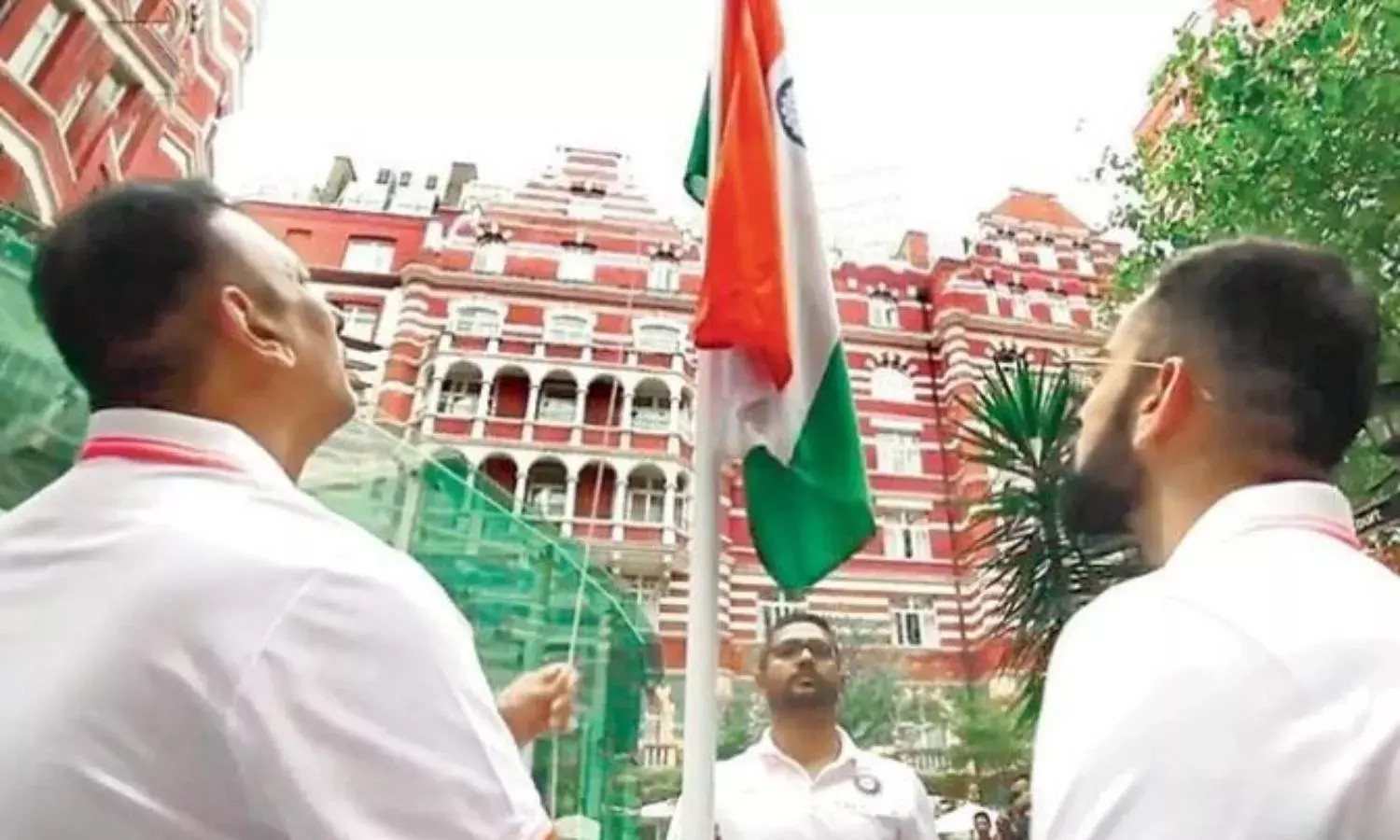Sports This Republic Day
Needs commitment and diligence

One early morning in the innocent mid-1980s, I woke up with high hopes – certainty, actually – of an Indian win. It was January 26, India’s Republic Day, a fitting day, one thought, for our cricket side to pull out all stops against the Australians in the triangular Benson & Hedges World Series Cup 1986. In the end, there was disappointment. And a revelation: January 26 also happened to be Australia Day. And a conclusion: the Australian cricketers’ love for country was greater than ours. It was a stupid conclusion.
For the record, India’s second Republic Day outing in 2000 (this piece focuses on ODIs alone), again against Australia, ended in disaster, a 152 run defeat. It was only in their next completed Republic Day outing, a 90 run triumph in New Zealand just last year, that the team added to the celebrations back home. These remain the only three completed ‘National Day’ matches India have featured in. They have never played on August 15, Independence Day.
Looking back at these National Day results, it is difficult to suggest that the occasion sparked any extraordinary surge in the team ranks. The results were pretty much in line with team quality and the form book. The 1986 loss was to a slightly better side which eventually won the tri-series. The 2000 loss came in another tri-series, one the Indian side struggled in, managing a solitary win in eight matches. The 2019 win was in a bilateral series the Indians dominated.
Other international sides have had similarly mixed National Days on the field. Sri Lanka have played twice on February 4, their Independence Day, and been overwhelmed on both occasions. In five matches played on March 23, Pakistan Day, and August 14, their Independence Day, Pakistan have won thrice, lost twice. If this includes a win against an in-form Sri Lankan side in the Morocco Cup of 2002, it also includes a loss to an off-color Indian side in the Coca Cola Cup of 2000.
New Zealand’s February 6, Waitangi Day, experiences are similar to Pakistan’s, a mix of predictable and surprising results but permitting no clear conclusions about the uplifting influences of National Days. Australia do have an impressive January 26 record, but then they have been a formidable side over the years and, given their different summer timing, have enjoyed the home advantage in most Australia Day encounters. About the other major cricketing nations, there is little to add. Bangladesh and South Africa have yet to play on their National Day, and England do not have one.
Clearly, the momentousness of a National Day, howsoever inspiring the reasons for its observance, does not always impart winning charge on the field. Match outcomes, the unpredictable nature of the sport notwithstanding, remain largely dependent on talent, preparation, stewardship, and readings of conditions, and better knit teams are generally better positioned to deliver. Series and tournament triumphs are public celebrations when they happen, but are shaped by diligent effort made day-in, day-out. Behind the dazzle of the crowning moment lie imaginations exercised and commitments made to self and team everyday.
As India prepares to celebrate her 71st Republic Day, the day we, the people of India, gave ourselves the Constitution to a sovereign, socialist, secular, democratic Republic, it may be a good time to reflect on what this implies for the country. Glory will come not with observances of the occasion, important as they are to remind us of the many things we need to cherish and many others we need to accomplish, but with investments in human capital, social cohesion, and nurturing excellence. A nation in search of the pinnacle, a democratic Republic in search for realization, has to toil round the clock, everyday to realize its quests. A commemorative calendar day is a good time to reflect. The endeavor itself is life-long.



